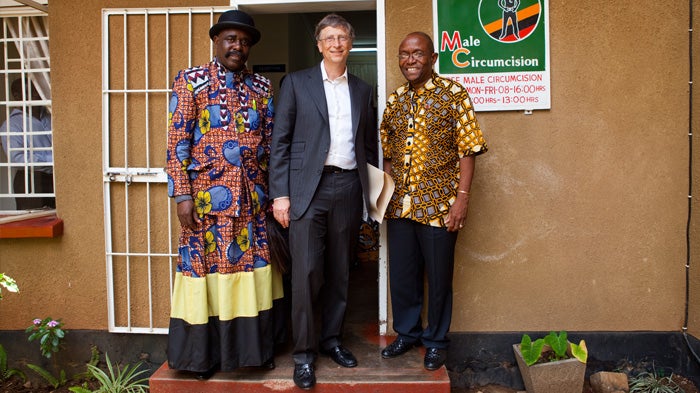A Meeting in Zambia
Chief Mumena: Leading by Example on HIV
The fight against AIDS in Africa is filled with true heroes. Chief Mumena is certainly one of them.


The fight against AIDS in Africa is filled with true heroes. To my mind, Chief Jonathan Eshiloni Mumena is certainly one of them.
When I visited Zambia in March, I had the chance to meet with him. He is a senior chief of the Kaonde people, who live along Zambia’s border with the Democratic Republic of Congo. Chief Mumena is one of his country's most respected traditional leaders, and he has been using his voice to encourage Kaonde men to embrace voluntary medical male circumcision as a strategy to prevent HIV transmission.
The discovery that male circumcision can reduce a man’s risk of acquiring or transmitting HIV by up to 60 percent is an exciting breakthrough in HIV prevention, but the message about male circumcision's life-saving potential still hasn't reached enough people.
Traditional leaders can play an important role in expanding demand for male circumcision, and Chief Mumena is showing the way. A few years ago, his teenaged son came to him and said, “I want to go for MC” (shorthand for male circumcision). Chief Mumena had never heard of “MC,” and he asked his son a lot of questions because the Kaonde do not historically practice circumcision.
But when his son showed him a brochure and told him about the tremendous HIV prevention potential of male circumcision, the chief became a convert to the cause. He started to encourage Kaonde men to be circumcised. And as a way to lead by example, Chief Mumena had the procedure in 2011. He was 47 years old at the time.
Hundreds of Kaonde men have responded to his call to action by undergoing the short, nearly painless procedure at local clinics managed by the Society for Family Health.
Chief Mumena is attending this week’s International AIDS Conference in Washington, DC, to share his story and raise visibility for male circumcision.

